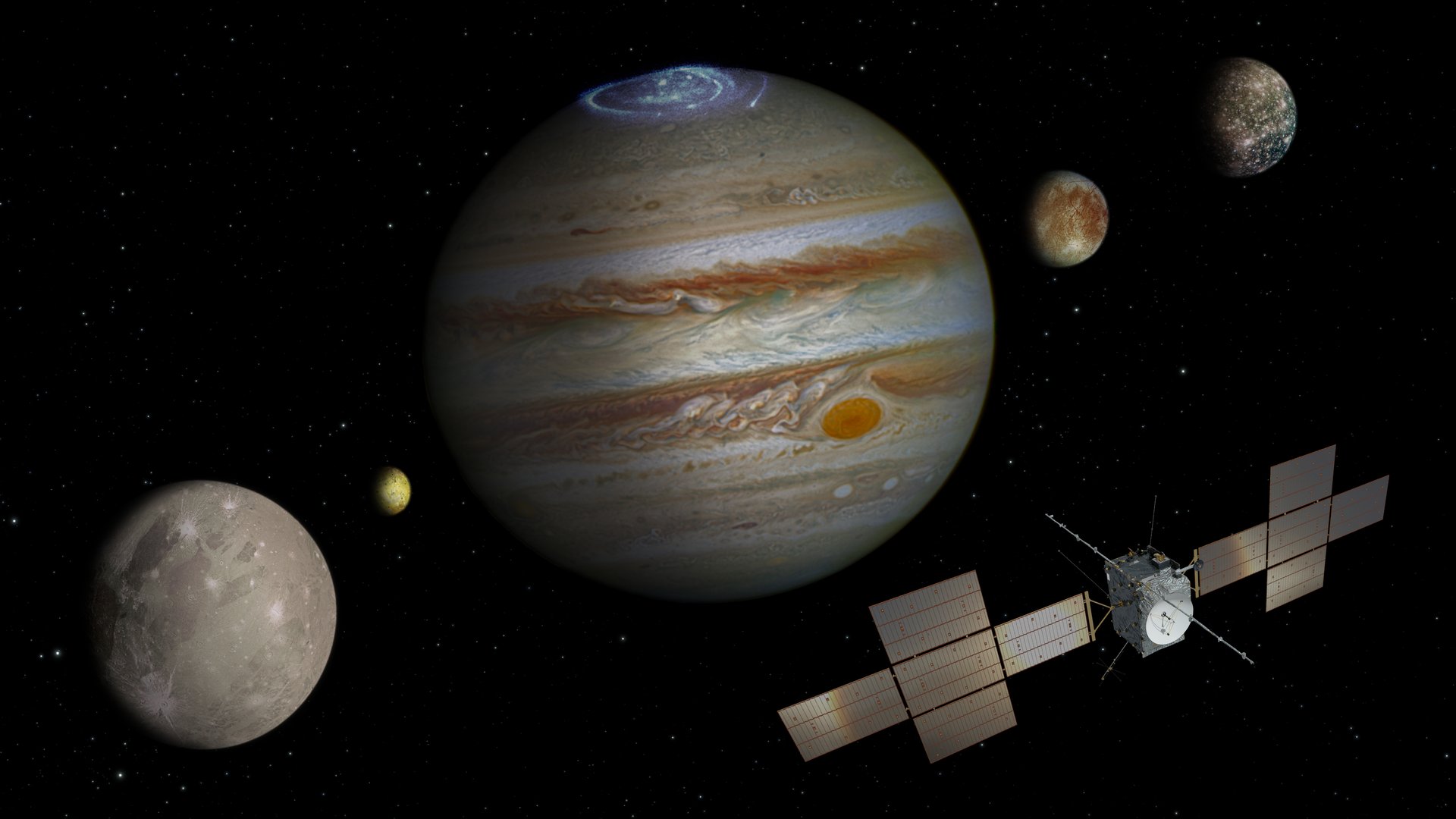Juice, because the launch of the ESA mission to Jupiter has been postponed

One day postponement for Juice, the European Space Agency (ESA) mission to explore three natural satellites of Jupiter. Enrico Ferrone's article
One day postponement — it seems like only one — for Juice.
The sky over the Kourou Cosmodrome is full of clouds today and the risk of lightning striking the Ariane V is too high. Nothing serious. The tanks will not have to be emptied if the interruption lasts only 24 hours. An extra day away from home for all those who have left for French Guiana, but those who do this job know that there is always an unknown factor around the corner. This time less than ten minutes from the "go"!
The mission of the European Space Agency (ESA) destined to explore three natural satellites of Jupiter, the largest planet in the solar system will leave a little late but will leave and then the fifth globe in order of distance from the Sun, which has a diameter of about 11 times that of Earth, will reveal many of its mysteries.
Babylonians, Greeks and Romans adored him as the king of the gods, but then it was Galileo in 1610 who, with the science at his disposal, observed its deepest periphery with the definition of four of his satellites orbiting around the giant: Io, Europa, Ganymede and Callisto, which would become the "Medici moons".
And the Ariane V VA260 on which the European program is embarked will go right up there. A long journey that will see Juice cross the immense space ocean in an apparent drift, but with a precise order: hook Jupiter and then, after having freed himself from the monstrous gravitational attraction, surround Ganymede, the largest of the natural satellites and dimensionally even larger of the planet Mercury. Its mass is made up of silicates and water ice — two elements that can suggest primordial biological life — with a molten iron core that supports convective movements capable of generating its own magnetic field. A body with many interesting features for the Earth. Therefore Juice will be a fundamental test both for the exploratory policies that humanity has been aiming for for years, and for the knowledge of the Earth, of its evolution and of many physical and chemical mechanisms that require experimental verifications. You will have to have the patience to wait eight springs just for the arrival at the first destination and then another three years to carry out the project evaluations.
For the scientific community it is not the first visit to the sovereign planet: exploration using automatic probes began in 1973 with the Pioneer 10 probe, followed the following year by Pioneer 11 and continued with Voyager 1 and Voyager 2, bringing large quantities of knowledge to humanity on the composition and evolution of the planet, revealing its gaseous and decidedly inhospitable nature for any human exploration. Not so, it may be, in a very distant future for now, for a visit from its satellites. Assuming that it is possible to solve the great problem of survival from the high quantity of radiation present there, trapped by the magnetosphere of the planet, as detected by the Galileo probe, in its seven years of orbit starting from 1995.
Now, however, some details of the Juice mission deserve attention.
There is a lot of Italy in this programme. It is not for some provincial bravado that makes us venture into the folds of this argument regarding the first artificial probe that will orbit Ganymede. Telecommunications equipment and ten scientific instruments have been installed on the spaceship traveling to Jupiter, which will give us valuable answers. Claiming the nationality of some devices is more than a parochial value but the demonstration of having a very high-level technology, suitable for an advanced nation which in turn claims to count for more than what is considered in certain contours. Let's avoid stripping the sensors: because the peculiarity of this program is precisely that a synergy has been designed between all the assembled equipment. The investigation is very thorough. Observing and examining the ground of a satellite – but we could speak of a small planet, as we said – which according to the studies carried out in recent years has all the characteristics of being able to be habitable. Therefore the decoding of the data will be a valuable tool for understanding the biology and evolution of the species.
It's not science fiction. It is the rational application of research that comes from afar, with important investments in an enabling technology which then has scientific and commercial implications for all of us inhabitants of the Earth. Obviously the design choices are very extreme but it is precisely this need to overcome the unsurpassable that in the end leads to solutions that can be rationalized for applications in everyday life. This is what emerged from the discussion held while awaiting connections from the base between scientists, managers and technicians, from the large auditorium made available to the Italian Space Agency in Tor Vergata, Rome.
Juice is an important programme: the evolved son of that extraordinary Cassini-Huygens mission which traveled for seven years from 1997 towards Saturn and Rosetta, which left in 2004 and landed in 2014 on comet 67P/Churyumov-Gerasimenko. Programs that have marked the history of space exploration and all equipped with a large number of Italian equipment.
This is a machine translation from Italian language of a post published on Start Magazine at the URL https://www.startmag.it/innovazione/juice-perche-e-stato-rimandato-il-lancio-della-missione-esa-verso-giove/ on Thu, 13 Apr 2023 14:52:54 +0000.
